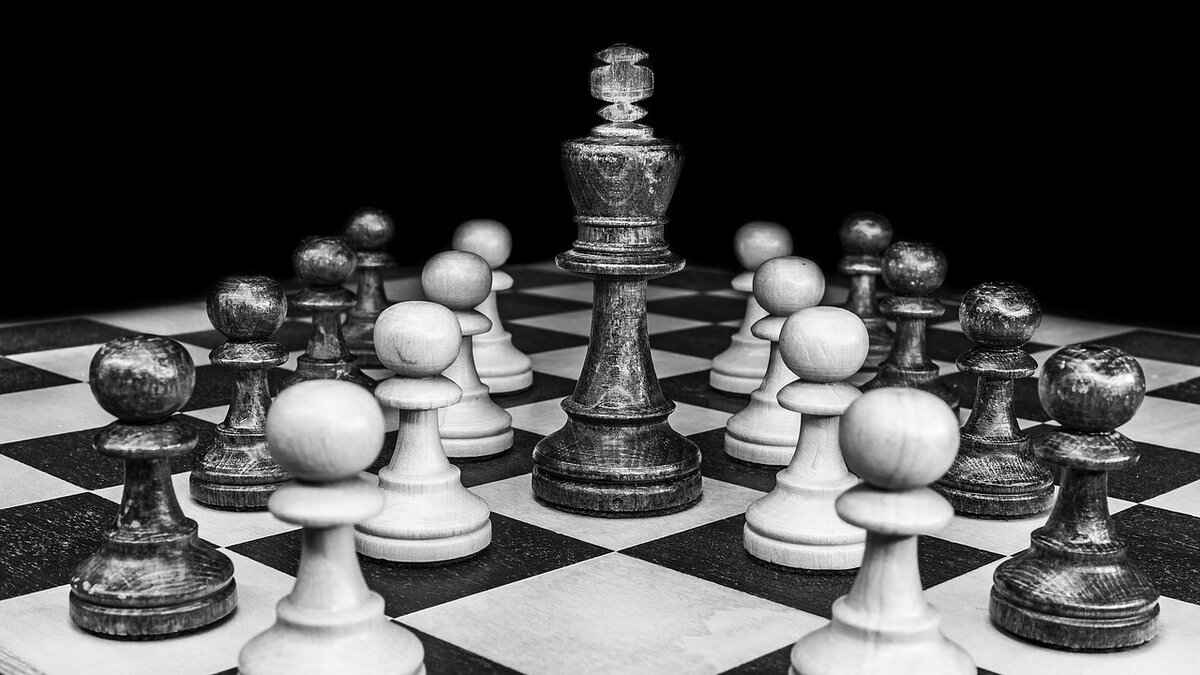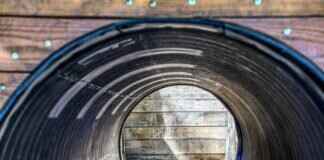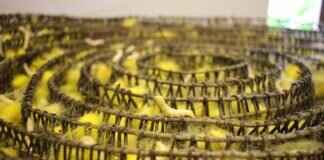Simisage is an intriguing Grass-type Pokémon that stands out in competitive play due to its unique abilities and strategic potential. This article delves into the strengths of Simisage, offering trainers valuable insights into how to effectively utilize this Pokémon in battles.
Understanding Simisage: The Agile Grass-Type
Simisage is renowned for its impressive speed and special attack stats. With a base speed of 101, it can outpace many opponents, making it a formidable choice in battles. Understanding its typing and base stats is essential for trainers aiming to craft effective strategies.
Key Abilities of Simisage
- Overgrow: This ability boosts the power of Simisage’s Grass-type moves when its health is low, turning it into a dangerous foe.
- Chlorophyll: In sunny weather, this ability doubles Simisage’s speed, allowing it to strike first against many opponents.
Optimal Moveset for Competitive Play
To maximize Simisage’s effectiveness, trainers should consider a well-rounded moveset that includes:
- Leaf Storm: A powerful Grass-type move that benefits from Overgrow.
- Giga Drain: Offers sustainability while dealing damage.
- Sleep Powder: A status move that can incapacitate opponents.
Strategies for Using Simisage in Battle
Successful trainers know when to attack and when to defend. Positioning Simisage correctly within your team can greatly enhance its effectiveness. Additionally, equipping items like Life Orb can amplify its damage output, while Sitrus Berry can improve its survivability.
Conclusion: Mastering Simisage in Competitive Battles
By understanding Simisage’s abilities and moves, trainers can unlock its full potential in competitive battles. With the right strategies and preparation, Simisage can become a pivotal member of any team, ensuring success against a variety of opponents.

Understanding Simisage: The Grass-Type Pokémon
Simisage Pokémon: How to Use It in Battle and Make the Most of Its AbilitiesThis article explores Simisage, its unique abilities, optimal strategies for battle, and tips for trainers looking to maximize its potential in competitive play.
Simisage is a Grass-type Pokémon that stands out due to its impressive agility and special attack capabilities. With a base stat total that emphasizes both speed and offensive power, Simisage is a versatile choice for trainers. Its Grass typing allows it to excel against Water, Ground, and Rock-type Pokémon, making it a valuable asset in various battle scenarios.
Key Abilities of Simisage
Simisage possesses unique abilities that significantly enhance its performance in battles. Understanding these abilities is essential for trainers aiming to leverage its strengths while mitigating potential weaknesses.
- Overgrow: This ability boosts Simisage’s Grass-type moves when its health drops below one-third, making it a formidable opponent. Trainers can turn the tide of battle by strategically managing Simisage’s health.
- Chlorophyll: In sunny weather, this ability doubles Simisage’s speed, allowing it to outspeed many foes. This is particularly advantageous in sun-based teams where speed is crucial.
Optimal Moveset for Competitive Play
Crafting an effective moveset is essential for maximizing Simisage’s potential. The right combination of moves can significantly enhance its role in battle.
- Recommended Grass-Type Moves: Moves like Leaf Blade and Giga Drain are essential for exploiting Simisage’s strengths, providing both offensive power and sustainability.
- Incorporating Status Moves: Moves such as Sleep Powder can disrupt opponents’ strategies, giving Simisage a tactical advantage.
Strategies for Using Simisage in Battle
Effective battle strategies can make a significant difference in Simisage’s performance. Understanding when to attack and when to defend is key to success.
- Positioning Simisage on Your Team: Placing Simisage strategically within your team can maximize its effectiveness. Consider its matchups against various opponents to optimize its potential.
- Utilizing Item Synergies: Equipping items like Life Orb can enhance Simisage’s damage output, while items like Sitrus Berry can improve its longevity in battles.
Conclusion: Mastering Simisage in Competitive Battles
By understanding Simisage’s abilities, moves, and optimal strategies, trainers can effectively utilize this Pokémon in competitive battles. Mastering its potential ensures success against a variety of opponents, making Simisage a valuable addition to any team.

Key Abilities of Simisage
Simisage is a fascinating Pokémon that stands out in battles due to its unique abilities. Understanding these abilities allows trainers to maximize Simisage’s strengths while minimizing its weaknesses. In this section, we will explore the key abilities of Simisage, providing insights on how to best utilize them in competitive play.
Simisage’s abilities play a crucial role in defining its battle style. Here are the primary abilities that trainers should focus on:
- Overgrow
- Chlorophyll
Overgrow is an ability that activates when Simisage’s health drops below one-third of its maximum HP. This ability boosts the power of its Grass-type moves by 50%. This can significantly turn the tide of battle, especially when combined with high-damage moves such as Leaf Storm or Solar Beam.
To fully capitalize on Overgrow, trainers should select moves that can deal substantial damage when Simisage’s health is low. For example, using Leaf Storm can unleash a devastating attack, potentially knocking out opponents who underestimate Simisage’s capabilities.
Chlorophyll doubles Simisage’s speed when the sun is shining bright. This ability makes Simisage a formidable opponent in sun-based teams, allowing it to outspeed many threats and execute powerful Grass-type moves before they can react.
Trainers can enhance Simisage’s performance by pairing it with Pokémon that can create sunny weather. Moves like Sunny Day or abilities like Drought can set the stage for Simisage to shine, making it a key player in any sun-focused strategy.
In conclusion, understanding and leveraging Simisage’s unique abilities can significantly enhance its effectiveness in battle. By employing strategies that exploit these strengths, trainers can ensure that Simisage remains a powerful contender in competitive play.
Overgrow: A Powerful Ability
Simisage is a Grass-type Pokémon that possesses unique abilities, making it a valuable asset in battles. One of its standout abilities is Overgrow, which significantly enhances its Grass-type moves when its health is low. This ability can strategically alter the dynamics of a battle, allowing trainers to turn the tide in their favor even when the odds seem stacked against them.
When Simisage’s health drops below one-third of its maximum HP, Overgrow activates, boosting the power of its Grass-type moves by 50%. This increase can be crucial in close battles, where every point of damage counts. For instance, a move like Leaf Storm can deal massive damage, potentially knocking out even the toughest opponents. The key to utilizing Overgrow effectively lies in managing Simisage’s health during combat.
Strategically, trainers can use Overgrow to bait opponents into attacking Simisage, allowing it to absorb hits while preparing to unleash a devastating counterattack. This tactic can create opportunities to eliminate threats, especially against Pokémon weak to Grass-type moves. Moreover, incorporating moves that lower Simisage’s health, such as Reversal, can synergize well with Overgrow, allowing for a powerful offensive strategy.
Understanding the timing of Overgrow’s activation is essential. Trainers should aim to keep Simisage’s HP in a precarious state, using healing items or moves like Synthesis judiciously to maintain the balance. By doing so, they can ensure that Overgrow is ready to provide that crucial boost when needed the most.
In conclusion, Overgrow is not just a passive ability; it is a dynamic component of Simisage’s battle strategy. By leveraging this ability effectively, trainers can maximize Simisage’s potential and create formidable challenges for their opponents.
Synergizing Moves with Overgrow
Simisage, the Grass-type Pokémon, is a dynamic and strategic asset in any trainer’s roster. To truly harness its potential, understanding how to synergize its abilities with powerful moves is essential. One of Simisage’s key abilities, Overgrow, activates when its HP is low, boosting the power of its Grass-type moves significantly. This makes it a prime candidate for high-damage attacks, especially when combined with potent moves.
When Simisage’s HP falls below a third of its maximum, the power of moves like Leaf Storm can be devastating. This attack not only benefits from the Overgrow boost but also delivers a substantial amount of damage, making it a critical move in tight situations. Trainers should aim to time their attacks carefully, using Leaf Storm when Simisage’s health is compromised to maximize the damage output against opponents.
Additionally, pairing Overgrow with moves such as Solar Beam can create a formidable offensive strategy. Solar Beam requires a turn to charge but, when executed under the influence of Overgrow, it can turn the tide of battle, potentially taking out even the most resilient foes. Furthermore, combining these moves with items like Choice Specs can enhance Simisage’s special attack, allowing it to hit even harder.
In summary, to effectively utilize Simisage’s Overgrow ability, trainers must focus on timing and move selection. By strategically employing powerful Grass-type moves like Leaf Storm and Solar Beam when Simisage’s HP is low, they can unleash a barrage of damage that can overwhelm opponents and secure victory. Understanding the synergy between Overgrow and these moves is crucial for any trainer looking to excel in competitive play.
Countering Opponents with Overgrow
Simisage is a formidable Grass-type Pokémon that can turn the tide of battle in its favor, especially when utilizing its ability, Overgrow. This ability activates when Simisage’s health is low, enhancing the power of its Grass-type moves significantly. Understanding the dynamics of Overgrow and predicting opponents’ moves are essential for trainers aiming to maximize Simisage’s potential in competitive play.
To effectively counter opponents using Overgrow, trainers must focus on anticipating their foes’ strategies. This involves analyzing patterns in their move usage and recognizing when they are likely to attack or switch Pokémon. By doing so, trainers can position Simisage to take advantage of weakened opponents, unleashing powerful Grass-type moves at critical moments.
For instance, if an opponent frequently uses status-inflicting moves, trainers can predict that they may attempt to weaken Simisage before launching a direct attack. In such scenarios, it is beneficial to use moves that can either inflict damage or disrupt the opponent’s strategy, such as Leaf Storm or Giga Drain. These moves not only capitalize on Overgrow’s power boost but also allow Simisage to regain health, sustaining its presence on the battlefield.
Moreover, trainers should consider the synergy between Simisage and their team. For example, pairing Simisage with Pokémon that can set up sunny weather enhances its speed and overall effectiveness. In sunny conditions, Simisage can outspeed many opponents, making it easier to predict their moves and react accordingly.
In conclusion, mastering the art of predicting opponents’ moves while utilizing Overgrow effectively can significantly enhance a trainer’s success with Simisage. By leveraging its strengths and understanding the battle dynamics, trainers can ensure that Simisage remains a powerful asset in their competitive lineup.
Chlorophyll: Speed Boost in Sunlight
Simisage Pokémon: How to Use It in Battle and Make the Most of Its AbilitiesThis article explores Simisage, its unique abilities, optimal strategies for battle, and tips for trainers looking to maximize its potential in competitive play.
One of the standout abilities of Simisage is Chlorophyll, which significantly enhances its speed in sunny weather. This ability allows Simisage to double its speed, making it a formidable opponent on the battlefield. In competitive play, this speed boost enables Simisage to outspeed many adversaries, providing a strategic advantage that can be pivotal in battles.
Chlorophyll is especially beneficial when paired with sun-based teams. When the sun is shining, not only does Simisage gain a speed advantage, but it also benefits from increased power on its Grass-type moves. This synergy allows trainers to launch swift and powerful attacks, often before the opponent can react.
To maximize the effectiveness of Chlorophyll, trainers should consider the following strategies:
- Team Composition: Incorporate Pokémon that can set up sunny weather, such as Venasaur or Charizard, to ensure that Simisage can take full advantage of its speed boost.
- Move Selection: Utilize moves like Solar Beam and Leaf Storm, which not only benefit from the sun but also capitalize on Simisage’s increased speed to deal significant damage.
- Item Synergy: Equip items like Choice Scarf or Life Orb to further enhance Simisage’s offensive capabilities while maintaining its speed advantage.
In conclusion, the Chlorophyll ability is a game-changer for Simisage in sunny weather conditions. By leveraging its speed and powerful Grass-type moves, trainers can create a dynamic and effective strategy that can outmaneuver and overpower many opponents. Understanding how to capitalize on this ability can greatly enhance Simisage’s role in competitive battles.

Optimal Moveset for Competitive Play
Crafting an effective moveset is crucial for maximizing Simisage’s potential in battles. A well-thought-out combination of moves not only enhances its offensive capabilities but also allows it to fulfill various roles within a team. Here’s a comprehensive guide to building the best moveset for Simisage.
- Understanding Moveset Composition: A balanced moveset typically includes a mix of offensive, defensive, and utility moves. For Simisage, focusing on its strengths as a Grass-type Pokémon is essential.
- Recommended Offensive Moves:
- Leaf Storm: This powerful Grass-type move takes advantage of Simisage’s high Special Attack, dealing significant damage, especially when combined with its ability Overgrow.
- Giga Drain: Offering both damage and recovery, Giga Drain allows Simisage to sustain itself during battles, making it a valuable choice for longevity.
- Incorporating Status Moves:
- Sleep Powder: This move can incapacitate opponents, providing Simisage with opportunities to set up or deal damage without retaliation.
- Leech Seed: An excellent way to chip away at opponents’ health while simultaneously recovering some HP for Simisage.
Defensive Strategies: In addition to offensive moves, consider including Protect or Substitute to shield Simisage from heavy damage while it sets up its strategy.
Ultimately, the key to a successful moveset lies in understanding your opponent’s team and adapting accordingly. By selecting moves that complement Simisage’s abilities and its role within the team, trainers can significantly enhance its performance in competitive battles.
Conclusion: An optimal moveset for Simisage not only boosts its offensive and defensive capabilities but also allows it to adapt to various battle scenarios. By carefully selecting moves and understanding their synergies, trainers can unlock the full potential of this agile Grass-type Pokémon.
Recommended Grass-Type Moves
Simisage Pokémon: How to Use It in Battle and Make the Most of Its AbilitiesThis article explores Simisage, its unique abilities, optimal strategies for battle, and tips for trainers looking to maximize its potential in competitive play.
Simisage is a Grass-type Pokémon known for its agility and special attack capabilities. Understanding its base stats and typing is crucial for effective battle strategies.
Simisage possesses unique abilities that enhance its performance in battles. Knowing these abilities can help trainers exploit its strengths and mitigate weaknesses.
Overgrow boosts Simisage’s Grass-type moves when its health is low, making it a formidable opponent. This ability can turn the tide in battles if used strategically.
To maximize Overgrow’s potential, pairing it with powerful Grass-type moves like Leaf Storm can deal significant damage when Simisage’s HP is low.
Understanding how to predict opponents’ moves can help trainers utilize Overgrow effectively, allowing Simisage to capitalize on weakened foes.
Chlorophyll doubles Simisage’s speed in sunny weather, allowing it to outspeed many opponents. This ability is particularly useful in sun-based teams.
Crafting an effective moveset is essential for maximizing Simisage’s potential. Selecting the right combination of moves can enhance its role in battle.
Moves like Leaf Blade and Giga Drain are essential for exploiting Simisage’s strengths. Leaf Blade offers high critical hit ratios, allowing Simisage to deal substantial damage to opponents. On the other hand, Giga Drain not only provides offensive power but also restores health, ensuring sustainability during prolonged battles.
Including moves like Sleep Powder can disrupt opponents’ strategies, giving Simisage a tactical advantage. Status moves can be game-changers in competitive play.
Effective battle strategies can make a significant difference in Simisage’s performance. Understanding when to attack and when to defend is key to success.
Placing Simisage in the right position within your team can maximize its effectiveness. Consider its matchups against opponents to optimize its potential.
Equipping items like Life Orb can enhance Simisage’s damage output, while items like Sitrus Berry can improve its longevity in battles. Choosing the right item is crucial.
By understanding Simisage’s abilities, moves, and optimal strategies, trainers can effectively utilize this Pokémon in competitive battles, maximizing its potential and ensuring success against various opponents.
Incorporating Status Moves
One of the most effective strategies in competitive Pokémon battles is the use of status moves. These moves can significantly disrupt an opponent’s strategy and provide a tactical advantage to the user. For Simisage, incorporating moves like Sleep Powder can be a game-changer, allowing it to incapacitate foes and create opportunities for team setup or offensive maneuvers.
When Simisage uses Sleep Powder, it can put the opposing Pokémon to sleep, effectively neutralizing their ability to attack for several turns. This not only disrupts their strategy but also gives Simisage and its teammates a chance to either attack freely or set up buffs. The ability to control the pace of the battle is invaluable, especially in high-stakes competitive play.
Moreover, using status moves can force opponents to switch out their Pokémon to avoid being affected, which can lead to advantageous matchups for Simisage. This tactic can also bait opponents into making mistakes, as they may underestimate Simisage’s potential to disrupt their plans.
In addition to Sleep Powder, trainers might consider other status moves such as Leech Seed or Stun Spore. Leech Seed not only damages the opponent over time but also restores health to Simisage, enhancing its sustainability in battles. On the other hand, Stun Spore can paralyze opponents, reducing their speed and giving Simisage a better chance to outspeed them in subsequent turns.
In summary, incorporating status moves into Simisage’s moveset is a strategic decision that can provide a significant edge in competitive battles. By effectively utilizing moves like Sleep Powder, trainers can disrupt their opponents’ strategies, control the battlefield, and enhance their overall chances of victory.

Strategies for Using Simisage in Battle
When it comes to utilizing Simisage effectively in battles, having a well-thought-out strategy is crucial. This Grass-type Pokémon can shine in various scenarios, but its success largely depends on the trainer’s ability to adapt and make the right moves at the right time. Below are some key strategies that can significantly enhance Simisage’s performance in competitive play.
- Assessing the Battlefield: Before engaging in battle, it’s essential to evaluate the opposing team’s strengths and weaknesses. Simisage excels against Water, Rock, and Ground types, so positioning it against these Pokémon can yield favorable outcomes.
- Timing Your Attacks: Knowing when to strike is vital. Utilizing moves like Leaf Storm when Simisage’s health is low can maximize the damage output due to its ability Overgrow. This strategy can catch opponents off guard and turn the tide of battle.
- Defensive Play: Sometimes, it’s better to hold back. If facing a strong opponent, consider using status moves like Sleep Powder to incapacitate foes, allowing Simisage to regain momentum during the battle.
- Utilizing Team Synergy: Simisage performs best when paired with teammates that can cover its weaknesses. For example, pairing it with Fire or Flying-type Pokémon can help mitigate its vulnerability to Bug and Poison types.
- Item Optimization: Equip Simisage with items that enhance its role in battle. A Life Orb can increase its damage output, while a Sitrus Berry can provide much-needed healing during intense battles.
In conclusion, effective battle strategies for Simisage revolve around understanding its strengths, knowing when to attack or defend, and leveraging team dynamics. By implementing these strategies, trainers can maximize Simisage’s potential and secure victories in competitive play.
Positioning Simisage on Your Team
To truly unleash the potential of Simisage, careful consideration of its positioning within your team is essential. This Grass-type Pokémon, known for its agility and special attack prowess, can be a game-changer when utilized correctly. Here are some key strategies to maximize its effectiveness:
- Analyze Matchups: Understanding the strengths and weaknesses of your opponents is crucial. Simisage excels against Water, Rock, and Ground types. When facing these Pokémon, it can dominate the battlefield with its powerful Grass-type moves.
- Team Composition: Placing Simisage in a role that complements your team’s overall strategy can enhance its performance. For instance, pairing it with Pokémon that can set up Sunny Day will allow Simisage to benefit from its Chlorophyll ability, significantly boosting its speed.
- Defensive Support: Consider placing Simisage in a position where it can benefit from defensive support. Pokémon that can set up hazards or provide status effects can create opportunities for Simisage to enter the battle safely.
- Timing is Key: Knowing when to switch in Simisage can be the difference between victory and defeat. Ideally, you want to bring it in when the opponent’s Pokémon is weakened or when they are susceptible to Grass-type attacks.
By strategically positioning Simisage, trainers can significantly enhance its effectiveness in battle. Remember to always consider the current state of the match and your opponent’s potential moves. This foresight can lead to optimal usage of Simisage’s abilities, ensuring it remains a formidable force throughout the battle.
Utilizing Item Synergies
In the world of competitive Pokémon battles, item selection plays a pivotal role in enhancing a Pokémon’s performance. For Simisage, choosing the right item can significantly impact its effectiveness in battle, allowing it to fulfill its role as a powerful Grass-type attacker while maintaining its survivability.
One of the most popular items for Simisage is the Life Orb. This item boosts the power of Simisage’s moves by 30% at the cost of a small amount of HP with each attack. This trade-off can be worthwhile, especially when combined with Simisage’s high special attack. With moves like Leaf Storm and Giga Drain, the Life Orb can turn Simisage into a formidable offensive threat, capable of taking down even the toughest opponents.
On the other hand, if you’re looking to improve Simisage’s longevity in battles, the Sitrus Berry is an excellent choice. This item restores 25% of Simisage’s maximum HP when its health falls below half. This can provide a crucial second wind during battles, allowing Simisage to withstand hits and continue applying pressure with its powerful Grass-type moves.
Moreover, trainers can consider items like Choice Specs or Focus Sash depending on their strategy. The Choice Specs can further increase Simisage’s special attack, locking it into a single move but maximizing damage output. Meanwhile, the Focus Sash ensures that Simisage survives at least one hit, allowing it to retaliate effectively.
Ultimately, the choice of item should align with your overall battle strategy and the specific threats you expect to face. By understanding the synergies between Simisage’s abilities and the items available, trainers can create a tailored approach that maximizes the Pokémon’s potential on the battlefield.

Conclusion: Mastering Simisage in Competitive Battles
Simisage Pokémon: How to Use It in Battle and Make the Most of Its Abilities
Simisage is a Grass-type Pokémon that stands out in competitive battles due to its unique abilities and tactics. By delving into its capabilities, moves, and strategic applications, trainers can truly unlock Simisage’s potential, ensuring it shines against various opponents.
Simisage is renowned for its agility and special attack prowess. Its base stats, particularly in speed and special attack, make it a formidable contender in battles. Understanding these stats is essential for crafting effective strategies.
Simisage possesses unique abilities that enhance its performance in battles. Knowing these abilities can help trainers exploit its strengths and mitigate weaknesses.
Overgrow boosts Simisage’s Grass-type moves when its health is low, making it a formidable opponent. This ability can turn the tide in battles if used strategically, allowing trainers to launch powerful attacks when their Pokémon is most vulnerable.
To maximize Overgrow’s potential, pairing it with powerful Grass-type moves like Leaf Storm can deal significant damage when Simisage’s HP is low. This synergy can catch opponents off guard and shift the momentum in your favor.
Understanding how to predict opponents’ moves can help trainers utilize Overgrow effectively, allowing Simisage to capitalize on weakened foes. This foresight can be the difference between victory and defeat.
Chlorophyll doubles Simisage’s speed in sunny weather, allowing it to outspeed many opponents. This ability is particularly useful in sun-based teams, where Simisage can outmaneuver threats and unleash powerful attacks.
Crafting an effective moveset is essential for maximizing Simisage’s potential. Selecting the right combination of moves can enhance its role in battle.
Moves like Leaf Blade and Giga Drain are essential for exploiting Simisage’s strengths. These moves provide both offensive power and sustainability in battles, allowing trainers to maintain pressure on their opponents.
Including moves like Sleep Powder can disrupt opponents’ strategies, giving Simisage a tactical advantage. Status moves can be game-changers in competitive play, providing opportunities for setup or recovery.
Effective battle strategies can make a significant difference in Simisage’s performance. Understanding when to attack and when to defend is key to success.
Placing Simisage in the right position within your team can maximize its effectiveness. Consider its matchups against opponents to optimize its potential, ensuring it is used at the right time for maximum impact.
Equipping items like Life Orb can enhance Simisage’s damage output, while items like Sitrus Berry can improve its longevity in battles. Choosing the right item is crucial for maintaining an edge over opponents.
By understanding Simisage’s abilities, moves, and optimal strategies, trainers can effectively utilize this Pokémon in competitive battles. Maximizing its potential not only ensures success against various opponents but also enhances the overall team dynamics, making Simisage a valuable asset in any trainer’s roster.














